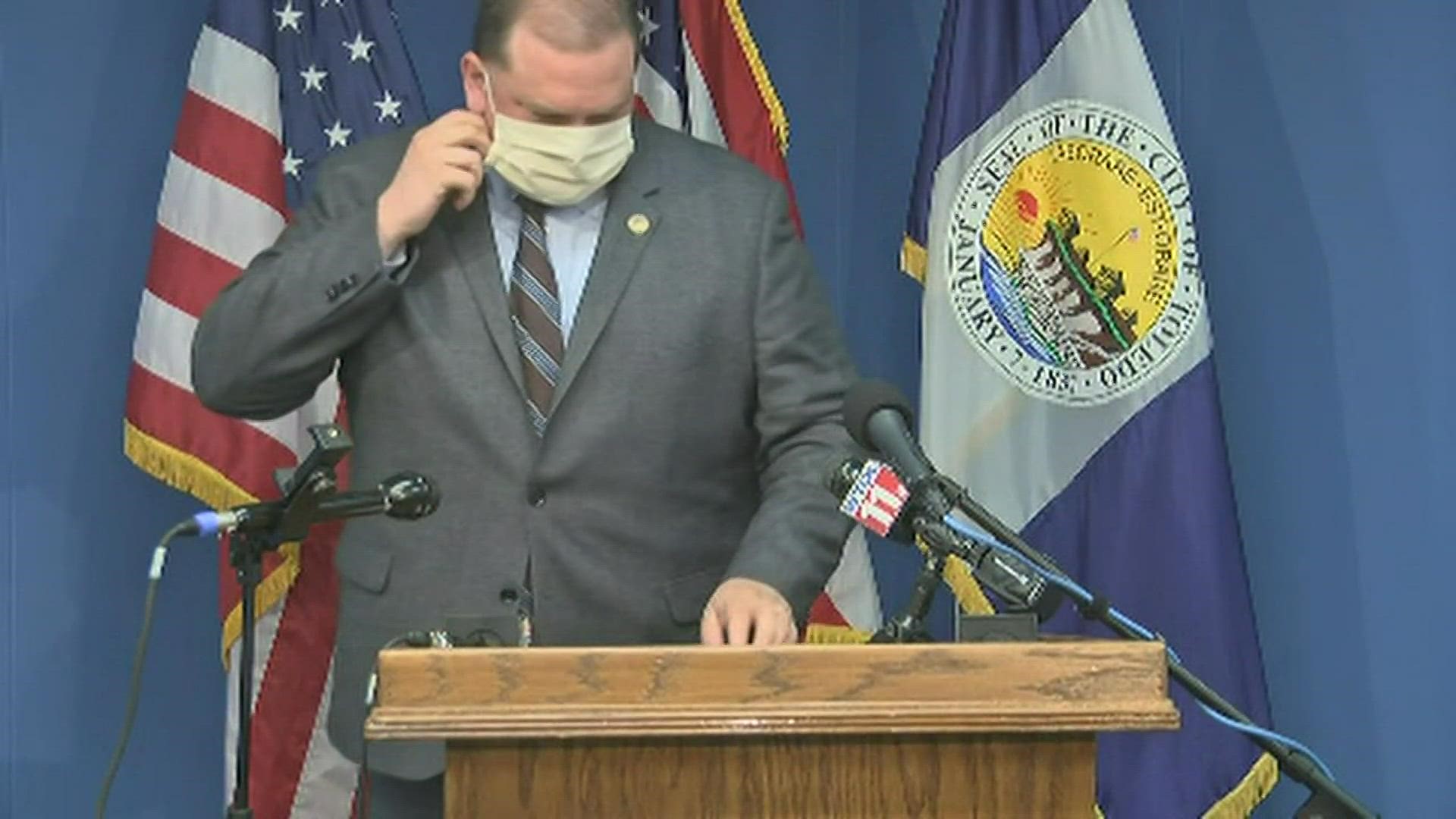TOLEDO, Ohio — Mayor Wade Kapszukiewicz held a news conference Monday to discuss the future of what was Issue 1 on the upcoming November ballot.
Instead of just one issue, the mayor is proposing two ballot issues - one to renew the 3/4 percent income tax and a new, 4-year 1/4 percent income tax increase that's for road repairs only.
Issue 1 was defeated in the spring election, but the mayor said the variations on the issue would be moving forward for the voters again to decide their fate in November, if city council approves.
The mayor is asking city council to approve by Aug. 4 two separate ballot issues to appear in November. The resolutions will be introduced Monday and will be debated in council starting Tuesday.
Gone from the upcoming request is funding for universal pre-K and funding for Toledo police and fire.
The first issue would renew the current 3/4 percent income tax. This tax was first passed in June 1982. It provides the city police and fire protection, snow removal, clean water, park maintenance, and other basic services.
"The potential defeat ... would cost the city of Toledo $56.8 million. I sought to find something else in our city budget that also had a $56.8 million line item," Kapzukiewicz said. "That is exactly the amount of money in salary and benefits that the city pays to our patrol officers. One way to think of the calamity that would befall the city of Toledo and its budget in the unlikely event that the levy would fail would to think of it in just those terms. Obviously, that's not a future anyone wants (the layoff of all patrol officers)."
The mayor said he was just using that example for illustrative purposes to drive home how much money was at stake.
The second issue would be a 1/4 percent increase of the payroll income tax in Toledo. It would raise $18.9 million to be spent "exclusively on road repairs," the mayor said. "It is a separate, standalone issue just for roads," the mayor said.
"The voters said three very clear things when it came to Issue 1. First, it was that the request was awfully large. The second thing we heard was that they didn't like that everything was jammed into one ballot issue. And thirdly, there was a real clear sense that of all the priorities that existed in the city, the citizens wanted the roads fixed more than anything else," Kapszukiewicz said.

